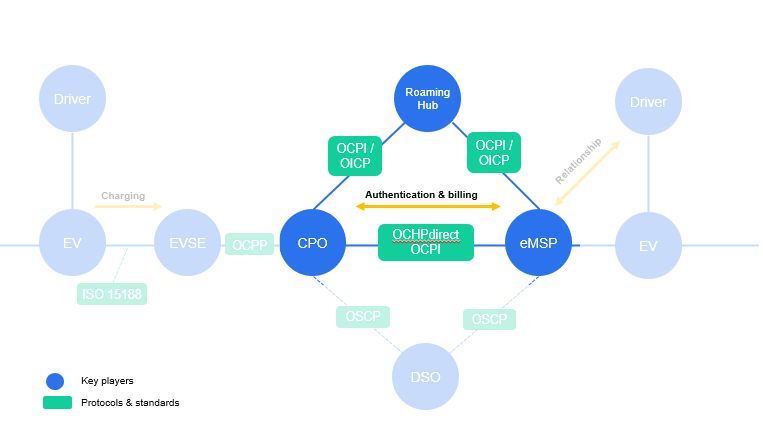Why OCPI is Essential for EV Roaming
While OCPP manages communication between a charger and its management system, OCPI handles the communication *between different charging networks*. This allows a driver from one network to seamlessly use a charger from another.
- Seamless Driver Experience: Drivers can use one app or RFID card to access thousands of chargers across different networks, eliminating "range anxiety."
- Automated Billing & Reconciliation: OCPI automates the exchange of billing information (CDRs) between partners, simplifying complex financial settlements.
- Real-Time Data Exchange: Provides live information on station location, availability, and pricing, ensuring drivers always have accurate data.

